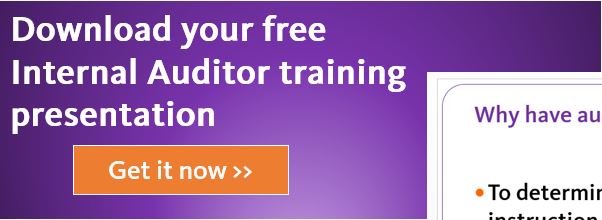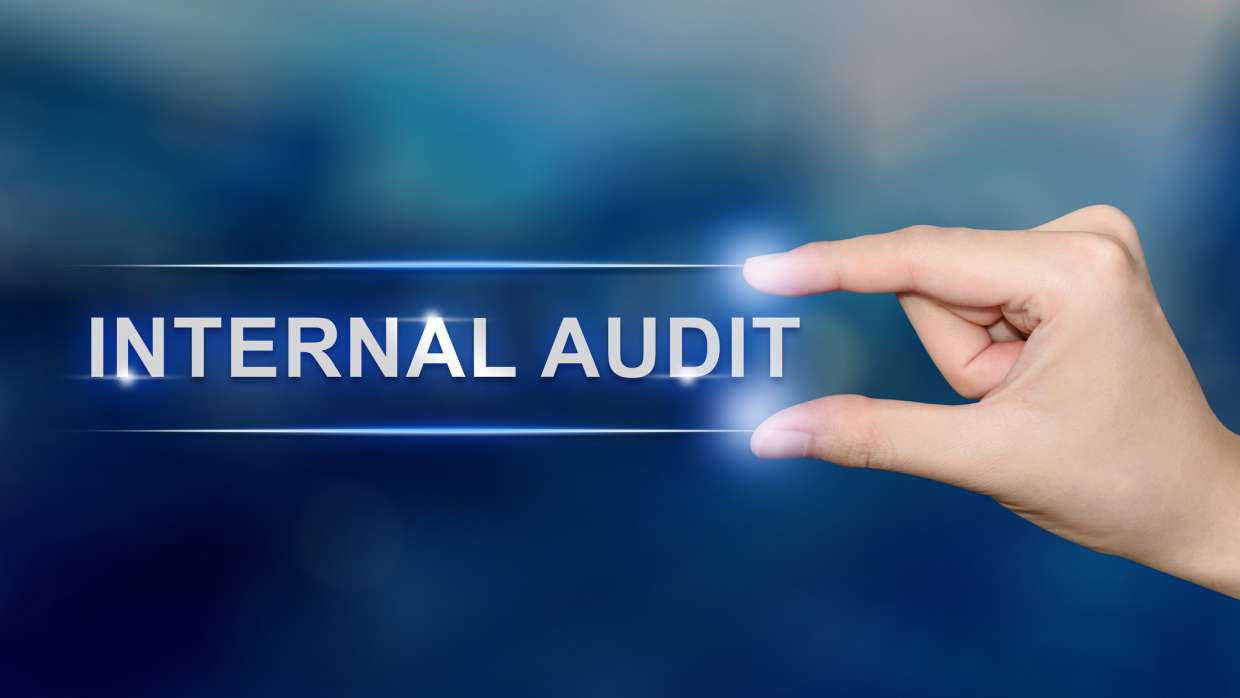Cease dependence on inspection (i.e. stop auditing)
I was on LinkedIn the other day reading back over some interesting discussions on internal auditing. One post made me stop and catch my breath. It discussed how internal auditing contravenes some of W Edward Deming’s 14 points. The argument came from none other than fellow QNewZ contributor, Ian Hendra from Clearline Services in Wellington, New Zealand.
Ian’s argument is mainly around point 3 – “Cease dependence on inspection to achieve quality. Eliminate the need for inspection on a mass basis by building quality into the product in the first place.”
Ian argues that some of Deming’s other points are contravened by internal auditing, but for this column let’s just stick with this point.

Ian also discusses how internal audit was hardly mentioned by Dr Deming during his visit to New Zealand back in 1984. It is not really discussed in Deming's books.
Ian is a great critical thinker having been on all sides of the compliance game. He has been a CEO of a certification body, he’s been on standards committees, he’s been a quality manager and he is now a consultant. I have met Ian a couple of times and follow him avidly on LinkedIn. He is always thought provoking.
Now, I am a devotee of Deming and his work. I have read his books and viewed many videos on YouTube. I was trained back in 1991 in Deming's red bead experiment in New Zealand by a Deming proponent Tim Ball. Deming’s teachings are always topical and I have freely used his quotes on my blog and in my columns in QNewZ. Deming’s ideas are hard to argue with. There is so much logical thinking and know-how in his work.
I am a great proponent of internal auditing. My one day training course is always fun to run, as I see the trainees turn from being sceptics into risk-based thinkers and system auditors. They come away from the course looking to highlight issues within their own systems. These issues can have a great impact on how a business operates.
Thus Ian was highlighting an uncomfortable conflict for me. On one hand I love internal auditing and how it can help companies become more efficient. But on the other hand Ian was pointing out that internal auditing goes against point 3 of Deming’s 14 key principles for management to follow for significantly improving the effectiveness of a business or organization.
How do I resolve this conflict?
To me, most internal and external audits are very poorly done. A quality control wonk or supervisor asks closed questions from a defined list. The answers are yes or no, or sometimes, “here is the procedure you are asking for”. The auditor then goes away to his or her office (alone) and based on the 20 answers tries to find something – anything! - to report, the aim being of course to make it seem as though the audit was worthwhile and useful to the organisation. These sorts of audits are the epitome of checkbox mentality.
The checkbox mentality is at best a waste of time, and at worst is potentially damaging to your business. In my experience audits are a great opportunity for everyone to step back and honestly appraise what they do, and why they do it. They are a time to get around a table with your colleagues or your suppliers – or, gasp, your customers! – and really take a good hard look at how things are going, and how things can be improved. They should be all about open-ended questions. They should be about having the customer in the forefront of your minds. They should be about discussion and analysis, not inspection. They are an opportunity to raise your head above the everyday busy-ness of business and get creative.
While I know that Deming would have been very anti-the checkbox mentality, I can’t help but think he would have been a supporter of tools that make you focus on the important stuff. I reckon he would have applauded any organisation that routinely asks itself the hard questions.
What are your thoughts?
Should you stop auditing and cease dependence on inspection?
.png?width=200&height=51&name=image%20(2).png)




